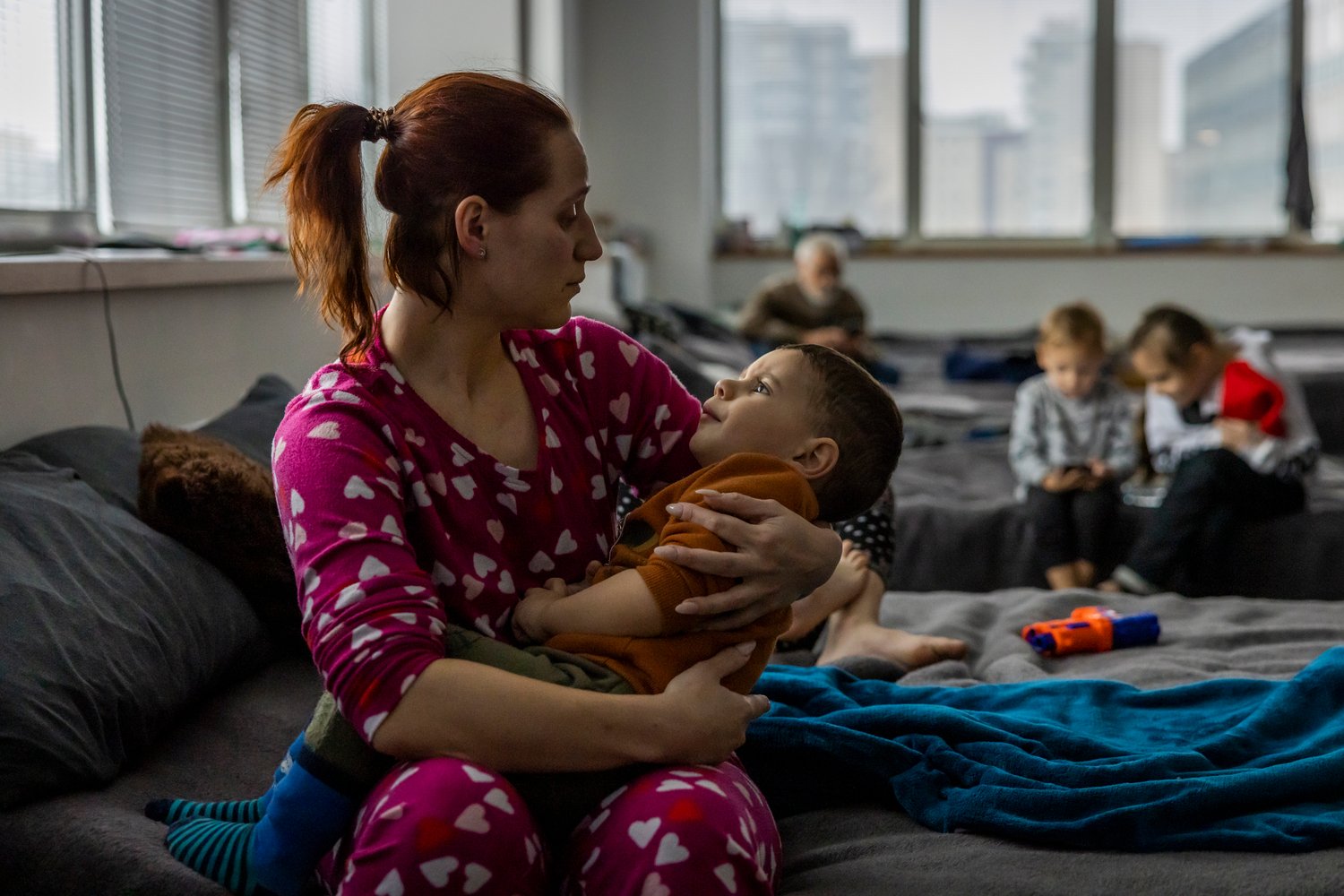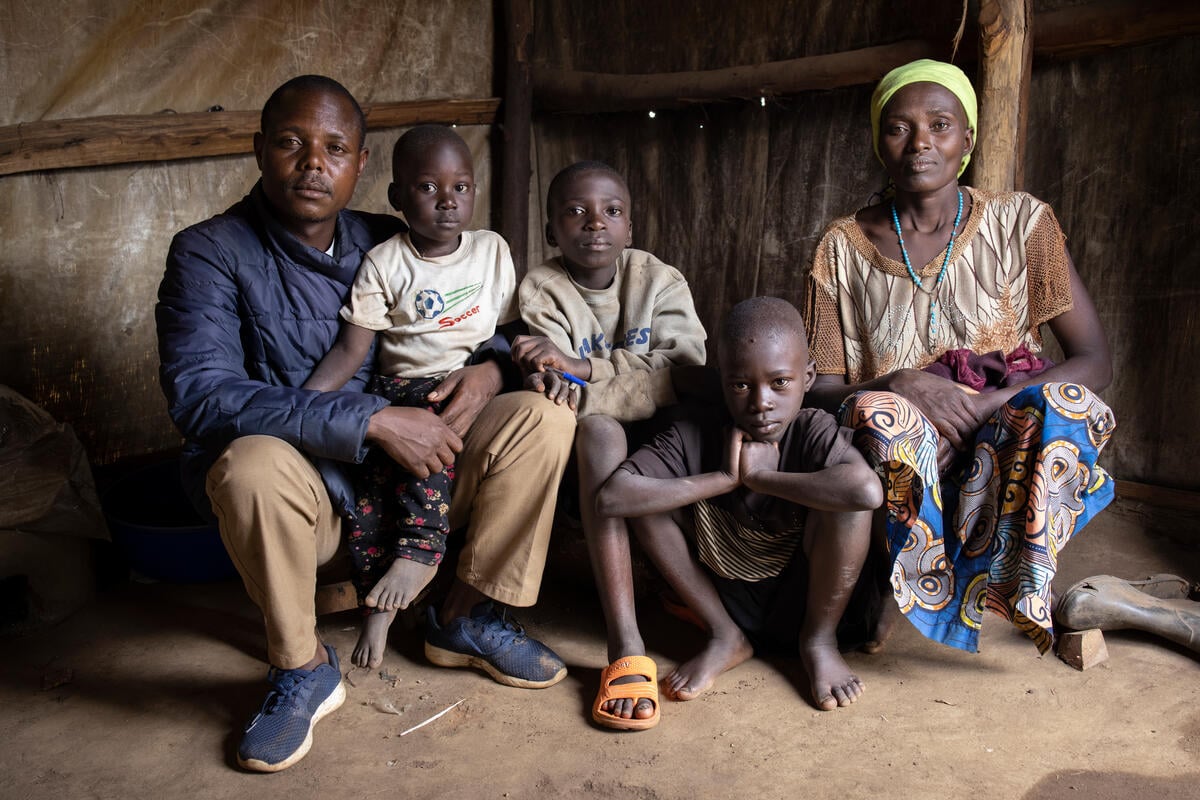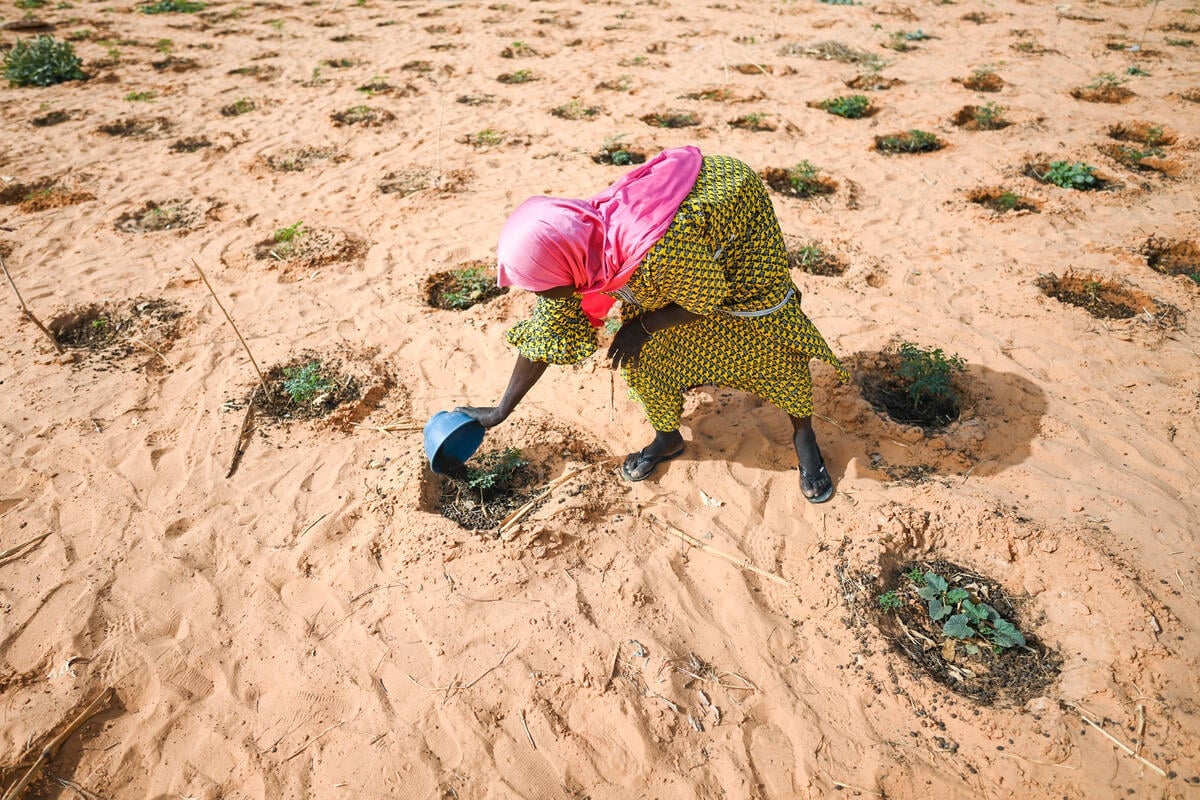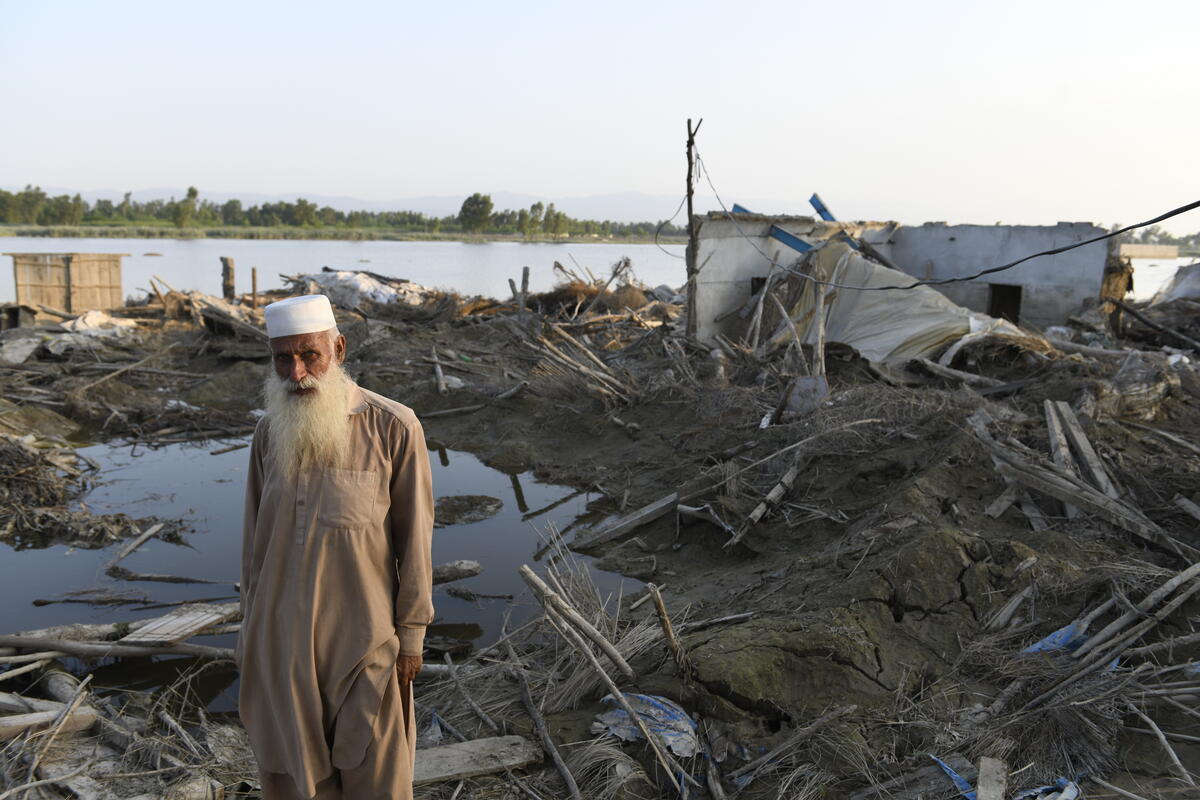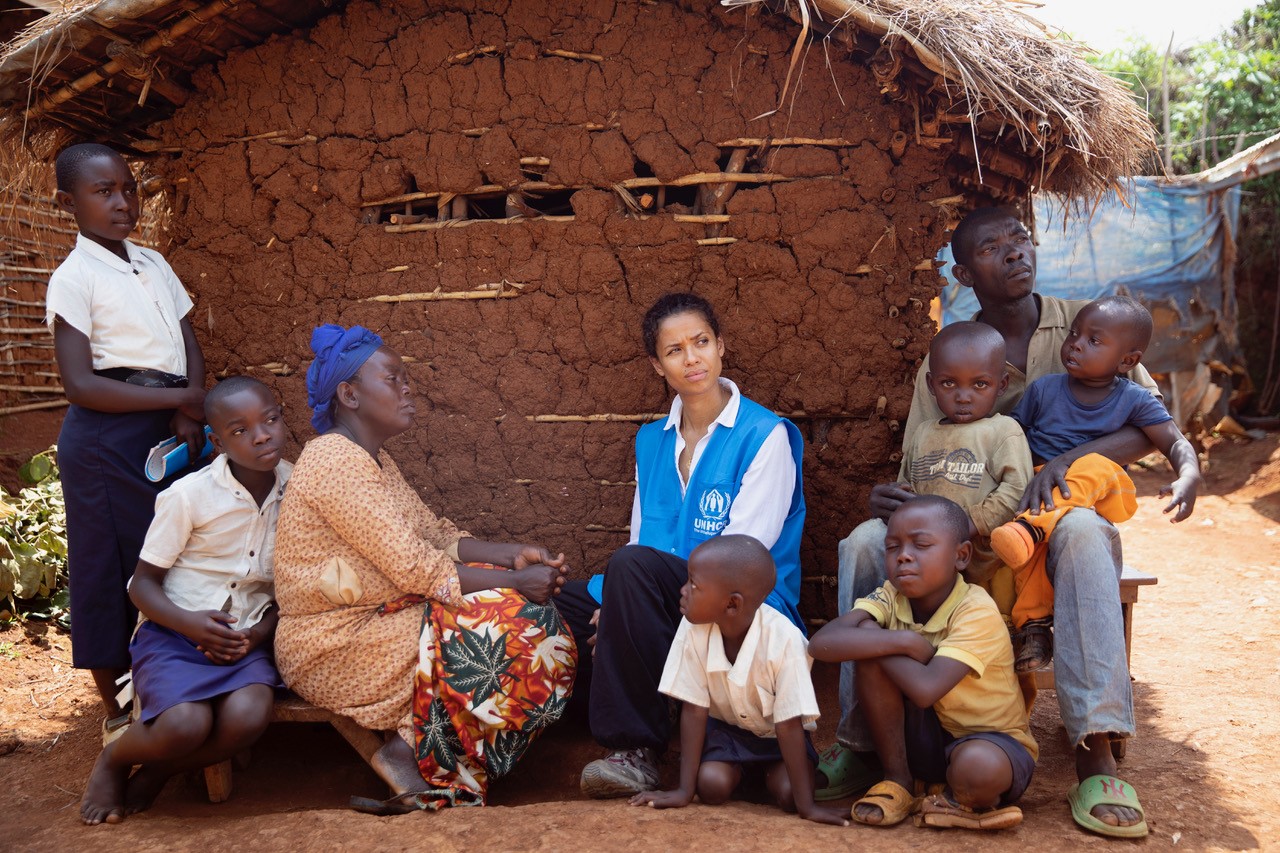UN High Commissioner for Refugees calls for a regional mechanism to deal with unprecedented displacement in Mexico and Central America
UN High Commissioner for Refugees calls for a regional mechanism to deal with unprecedented displacement in Mexico and Central America

GENEVA – UN High Commissioner for Refugees Filippo Grandi concluded a 10-day visit to Mexico, El Salvador and Guatemala with an impassioned appeal for a regional mechanism that would help to scale up, coordinate and create synergies between the different programmes, policies and initiatives dealing with the unprecedented magnitude and complexity of the population movements in Mexico and Central America.
“Instead of erecting walls to contain people, we need to stabilize those on the move by creating the necessary conditions so that they don't need to leave and those who need to leave find what they need closer to home,” explained Grandi. “What we need is a regional mechanism to generate synergies between the various existing programmes, alliances, platforms and fora that are trying to address the structural causes of human mobility and seek solutions.”
A number of interconnected economic, social and humanitarian root causes, which include lack of opportunities, insecurity caused by gangs and organized crime, the ravages of the COVID-19 pandemic and the effects of climate change, have triggered the displacement of nearly one million people in Mexico and Central America.
In addition, migrants and asylum seekers from further south and from the Caribbean are increasingly transiting through Central America. This year, more than 100,000 men, women and children have crossed from Colombia to Panama through the jungle-covered Darien Gap, while, during the first six months of 2021, Mexico received the third highest number of asylum applications in the world.
“Mexico and Guatemala are not only countries of transit but increasingly places where refugees and migrants are finding safety and access to opportunities,” said Grandi. “In these two countries I saw examples of generosity, a warm welcome and genuine efforts to make refugees part of the fabric of society and the economy. I also met many refugees who are happily working, studying and contributing in many different ways to their host communities.”
UNHCR is working with governments, civil society and other partners to strengthen the asylum systems in Mexico, Guatemala and other countries in Central America, and advocates for migratory alternatives for those who need them.
Many of the people uprooted by violence in the region do not cross international borders but remain within their own countries. During his visit, the High Commissioner witnessed the efforts of El Salvador to strengthen its legislation, public policies and programmes to respond to the needs for protection, services and assistance of internally displaced people.
“In El Salvador, I was impressed by the enthusiasm of young people expressing themselves and demonstrating their talents. Their resilience and strength are inspiring,” said Grandi. Urban youth centres run by the government of El Salvador and community-based initiatives offer safe spaces to children and adolescents at risk of displacement and recruitment by criminal gangs.
On Tuesday 30 November, the High Commissioner participated in the 4th Annual meeting of the Comprehensive Regional Protection and Solutions Framework (MIRPS, for its acronym in Spanish), which brings together Belize, Costa Rica, El Salvador, Guatemala, Honduras, Mexico and Panama to coordinate regional and national responses aimed at mitigating the root causes of forced displacement, providing effective responses to the protection needs of the displaced population, asylum seekers, refugees and returnees in need of protection, as well as the search for durable solutions.
"The MIRPS has been a motor for initiatives in the displacement and refugee agenda in the region, joining forces to respond to protection needs and at the same time to contribute to the stabilization of these flows," said Grandi.
“There are many excellent initiatives and local projects in the region,” Grandi said. “They are very important and necessary because they show what can be achieved, but by themselves they are not enough. To make a difference we need to replicate them, expand their reach and interconnect them. We need to scale up the response and this requires the much more active participation of development actors, regional institutions, international banks, United Nations agencies and civil society.”
During his visit, the High Commissioner met the Presidents of El Salvador and Guatemala, national and local government officials, and representatives from NGOs, community organizations, academic institutions, the private sector and other partners. He also met with refugees, asylum seekers, internally displaced people and migrants.
For more information please contact:
- In Panama, William Spindler, [email protected], +507 6382 7815
- In Mexico, Sibylla Brodzinsky, [email protected] + 52 55 8048 5054
- In Geneva, Aikaterini Kitidi, [email protected], +41 79 580 8334


